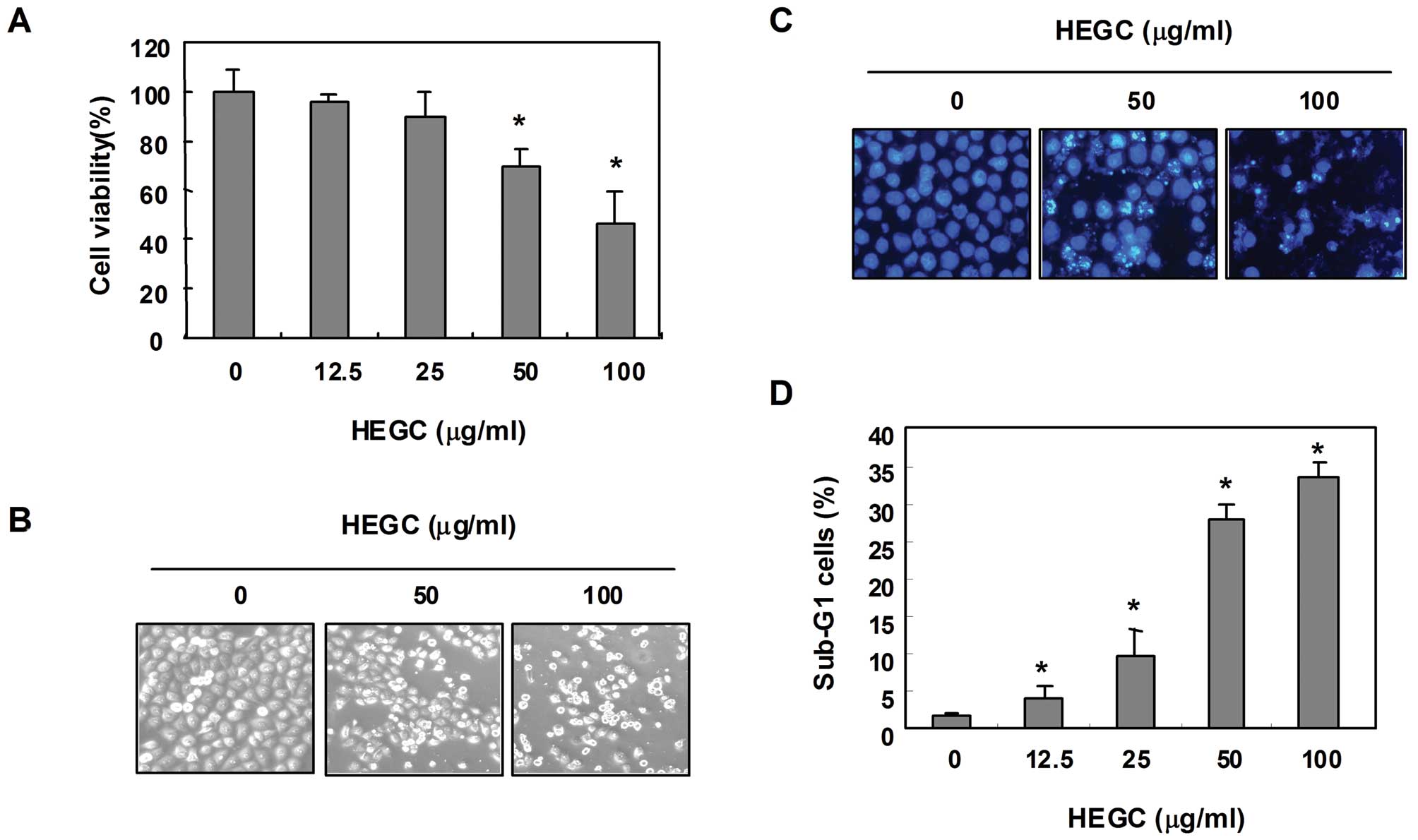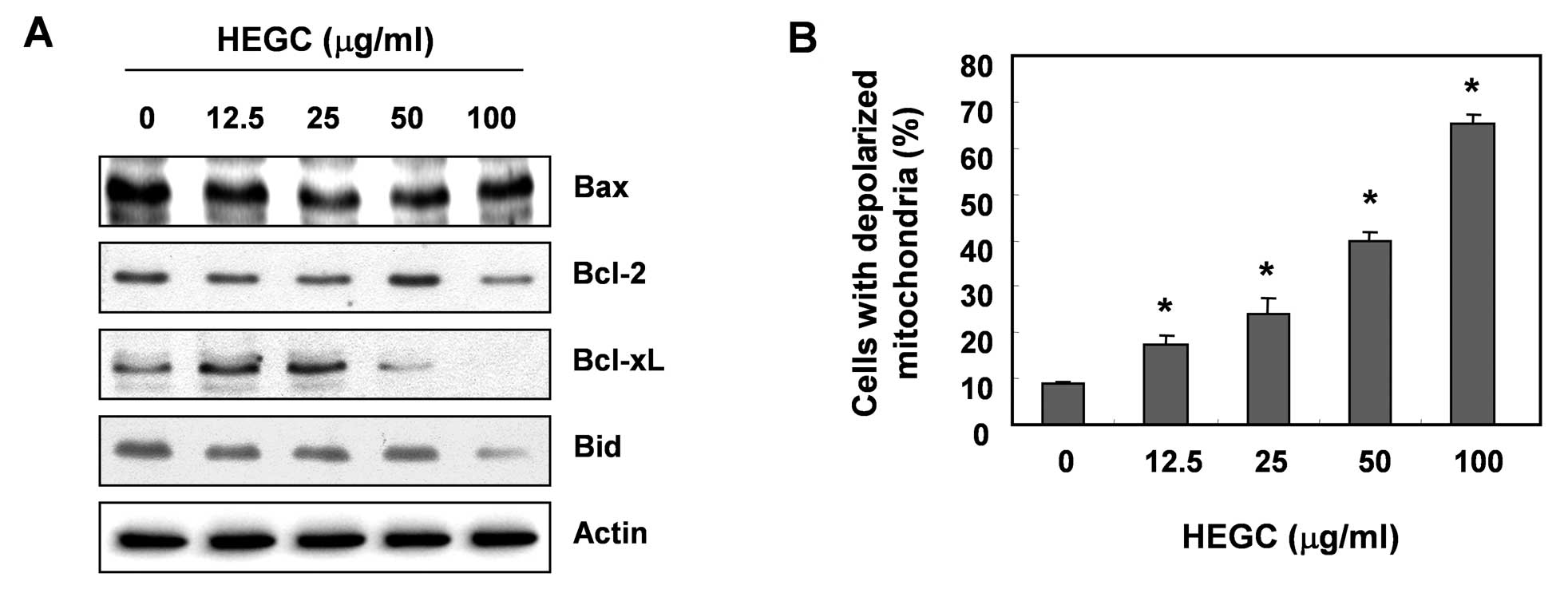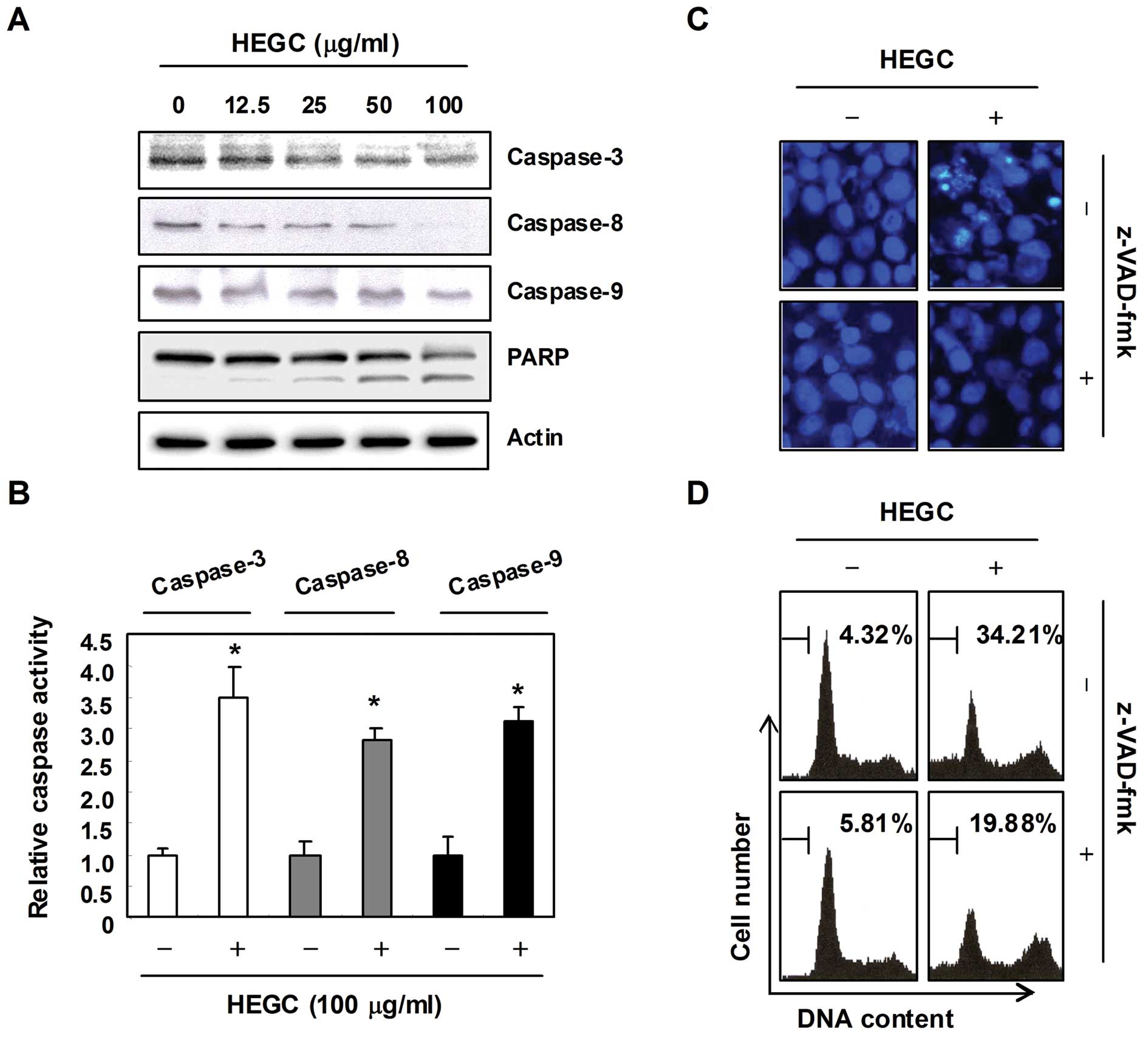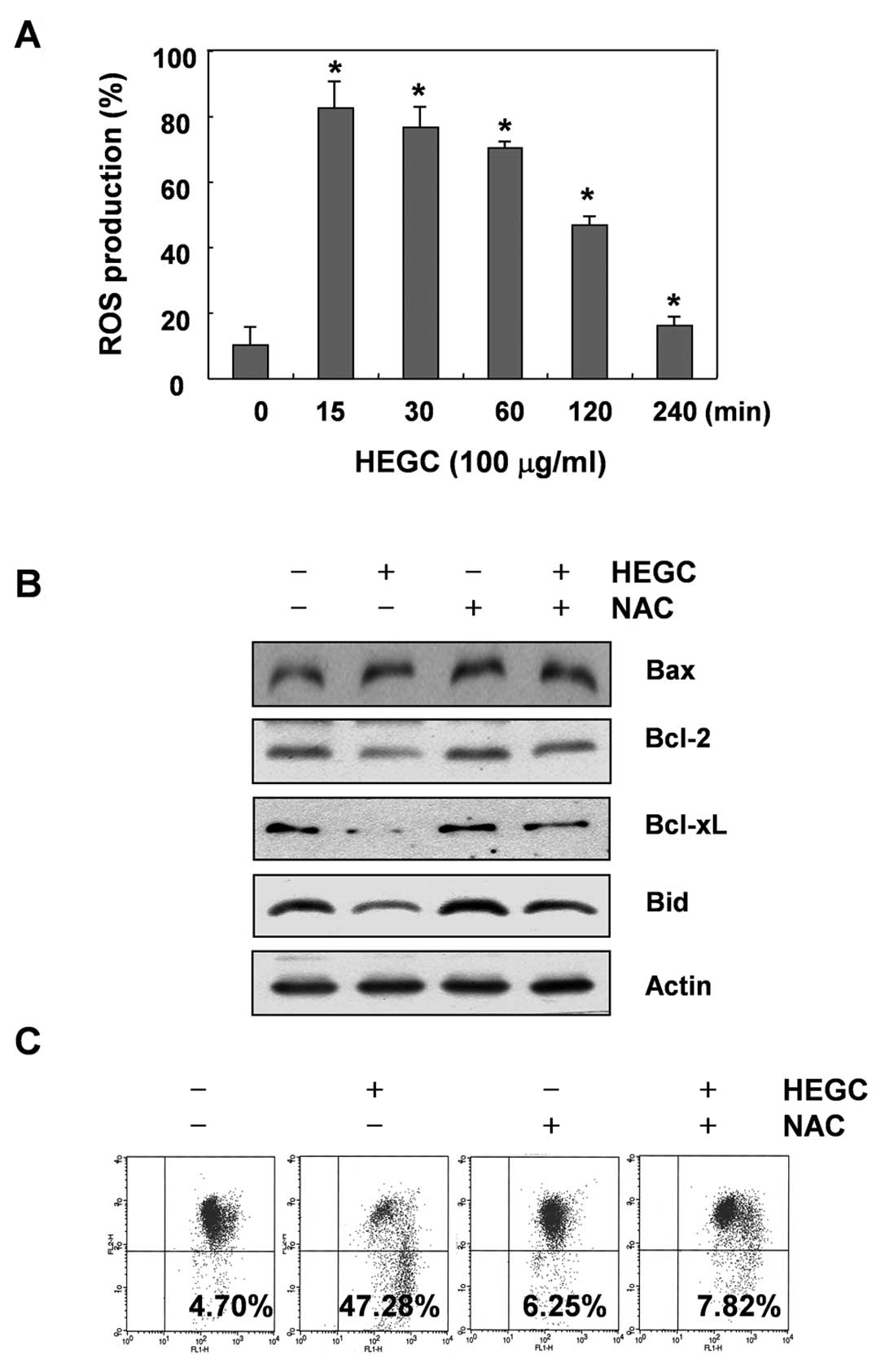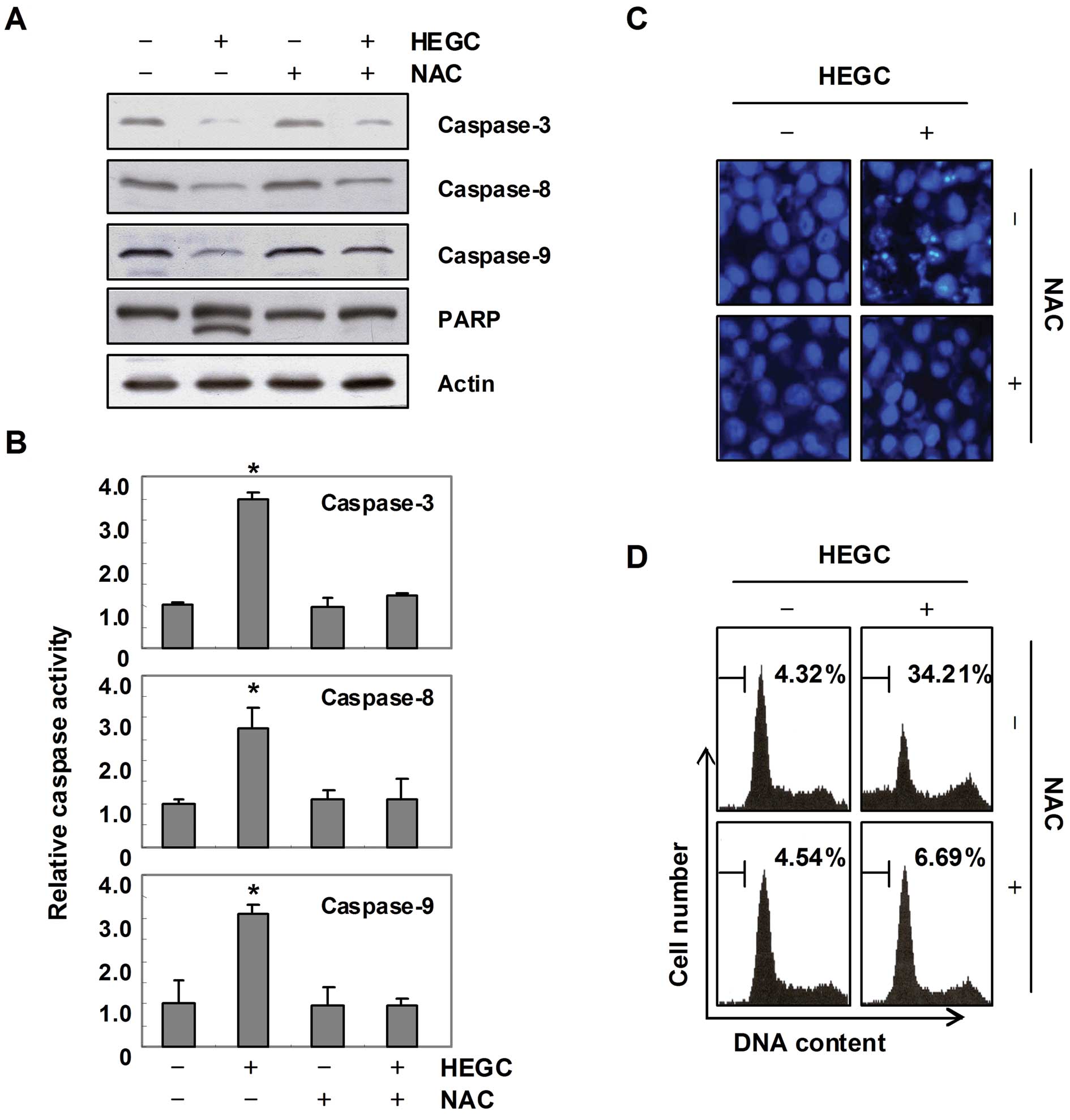|
1
|
Chowdhury I, Tharakan B and Bhat GK:
Current concepts in apoptosis: the physiological suicide program
revisited. Cell Mol Biol Lett. 11:506–525. 2006. View Article : Google Scholar : PubMed/NCBI
|
|
2
|
Waldbaum S and Patel M: Mitochondria,
oxidative stress, and temporal lobe epilepsy. Epilepsy Res.
88:23–45. 2010. View Article : Google Scholar : PubMed/NCBI
|
|
3
|
Stowe DF and Camara AK: Mitochondrial
reactive oxygen species production in excitable cells: modulators
of mitochondrial and cell function. Antioxid Redox Signal.
11:1373–1414. 2009. View Article : Google Scholar : PubMed/NCBI
|
|
4
|
Matés JM, Segura JA, Alonso FJ and Márquez
J: Intracellular redox status and oxidative stress: implications
for cell proliferation, apoptosis, and carcinogenesis. Arch
Toxicol. 82:273–299. 2008.PubMed/NCBI
|
|
5
|
Mohamad N, Gutierrez A, Nunez M, Cocca C,
Martin G, Cricco G, Medina V, Rivera E and Bergoc R: Mitochondrial
apoptotic pathways. Biocell. 29:149–161. 2005.
|
|
6
|
Orrenius S, Gogvadze V and Zhivotovsky B:
Mitochondrial oxidative stress: implications for cell death. Annu
Rev Pharmacol Toxicol. 47:143–183. 2007. View Article : Google Scholar : PubMed/NCBI
|
|
7
|
Yin XM: Signal transduction mediated by
Bid, a pro-death Bcl-2 family proteins, connects the death receptor
and mitochondria apoptosis pathways. Cell Res. 10:161–167. 2000.
View Article : Google Scholar : PubMed/NCBI
|
|
8
|
Alpers DH: Garlic and its potential for
prevention of colorectal cancer and other conditions. Curr Opin
Gastroenterol. 25:116–121. 2009. View Article : Google Scholar : PubMed/NCBI
|
|
9
|
Hodge G, Hodge S and Han P: Allium
sativum (garlic) suppresses leukocyte inflammatory cytokine
production in vitro: potential therapeutic use in the treatment of
inflammatory bowel disease. Cytometry. 48:209–215. 2002. View Article : Google Scholar
|
|
10
|
Cellini L, Campli ED and Masulli M:
Inhibition of Helicobacter pylori by garlic extract
(Allium sativum). FEMS Immunol Med Microbiol. 13:273–277.
1996.
|
|
11
|
Bordia T, Mohammed N and Thomson M: An
evaluation of garlic and onion as antithrombotic agents.
Prostaglandins Leukot Essent Fatty Acids. 54:183–186. 1996.
View Article : Google Scholar : PubMed/NCBI
|
|
12
|
McMahon FG and Vargas R: Can garlic lower
blood pressure? A pilot study. Pharmacotherapy. 13:406–407.
1993.PubMed/NCBI
|
|
13
|
Yeh YY and Yeh SM: Garlic reduces plasma
lipids by inhibiting hepatic cholesterol and triacylglycerol
synthesis. Lipids. 29:189–193. 1994. View Article : Google Scholar : PubMed/NCBI
|
|
14
|
Patya M, Zahalka MA, Vanichkin A, Rabinkov
A, Miron T, Mirelman D, Wilchek M, Lander HM and Novogrodsky A:
Allicin stimulates lymphocytes and elicits an antitumor effect: a
possible role of p21ras. Int Immunol. 16:275–281. 2004. View Article : Google Scholar : PubMed/NCBI
|
|
15
|
Thomson M and Ali M: Garlic [Allium
sativum]: a review of its potential use as an anti-cancer
agent. Curr Cancer Drug Targets. 3:67–81. 2003.
|
|
16
|
Wu PP, Chung HW, Liu KC, Wu RS, Yang JS,
Tang NY, Lo C, Hsia TC, Yu CC, Chueh FS, et al: Diallyl sulfide
induces cell cycle arrest and apoptosis in HeLa human cervical
cancer cells through the p53, caspase- and mitochondria-dependent
pathways. Int J Oncol. 38:1605–1613. 2011.PubMed/NCBI
|
|
17
|
Nagaraj NS, Anilakumar KR and Singh OV:
Diallyl disulfide causes caspase-dependent apoptosis in human
cancer cells through a Bax-triggered mitochondrial pathway. J Nutr
Biochem. 21:405–412. 2010. View Article : Google Scholar
|
|
18
|
Karmakar S, Banik NL, Patel SJ and Ray SK:
Garlic compounds induced calpain and intrinsic caspase cascade for
apoptosis in human malignant neuroblastoma SH-SY5Y cells.
Apoptosis. 12:671–684. 2007. View Article : Google Scholar : PubMed/NCBI
|
|
19
|
Karmakar S, Choudhury SR, Banik NL and Ray
SK: Molecular mechanisms of anti-cancer action of garlic compounds
in neuroblastoma. Anticancer Agents Med Chem. 11:398–407. 2011.
View Article : Google Scholar : PubMed/NCBI
|
|
20
|
Su CC, Chen GW, Tan TW, Lin JG and Chung
JG: Crude extract of garlic induced caspase-3 gene expression
leading to apoptosis in human colon cancer cells. In Vivo.
20:85–90. 2006.PubMed/NCBI
|
|
21
|
Xiao D, Pinto JT, Gundersen GG and
Weinstein IB: Effects of a series of organosulfur compounds on
mitotic arrest and induction of apoptosis in colon cancer cells.
Mol Cancer Ther. 4:1388–1398. 2005. View Article : Google Scholar : PubMed/NCBI
|
|
22
|
Herman-Antosiewicz A, Powolny AA and Singh
SV: Molecular targets of cancer chemoprevention by garlic-derived
organosulfides. Acta Pharmacol Sin. 28:1355–1364. 2007. View Article : Google Scholar : PubMed/NCBI
|
|
23
|
Herman-Antosiewicz A and Singh SV: Signal
transduction pathways leading to cell cycle arrest and apoptosis
induction in cancer cells by Allium vegetable-derived organosulfur
compounds: a review. Mutat Res. 555:121–131. 2004. View Article : Google Scholar
|
|
24
|
An SH, Kang JH, Kim DH and Lee MS: Vitamin
C increases the apoptosis via up-regulation p53 during cisplatin
treatment in human colon cancer cells. BMB Rep. 44:211–216. 2011.
View Article : Google Scholar : PubMed/NCBI
|
|
25
|
Cathcart R, Schwiers E and Ames BN:
Detection of picomole levels of lipid hydroperoxides using a
dichlorofluorescein fluorescent assay. Methods Enzymol.
105:352–358. 1984. View Article : Google Scholar : PubMed/NCBI
|
|
26
|
Choi JH, Choi AY, Yoon H, Choe W, Yoon KS,
Ha J, Yeo EJ and Kang I: Baicalein protects HT22 murine hippocampal
neuronal cells against endoplasmic reticulum stress-induced
apoptosis through inhibition of reactive oxygen species production
and CHOP induction. Exp Mol Med. 42:811–822. 2010. View Article : Google Scholar
|
|
27
|
Jeong JH, Ryu DS, Suk DH and Lee DS:
Anti-inflammatory effects of ethanol extract from Orostachys
japonicus on modulation of signal pathways in LPS-stimulated
RAW 264.7 cells. BMB Rep. 44:399–404. 2011.PubMed/NCBI
|
|
28
|
Cho SY, Lee JH, Bae HD, Jeong EM, Jang GY,
Kim CW, Shin DM, Jeon JH and Kim IG: Transglutaminase 2 inhibits
apoptosis induced by calcium-overload through down-regulation of
Bax. Exp Mol Med. 42:639–650. 2010. View Article : Google Scholar : PubMed/NCBI
|
|
29
|
Harada H and Grant S: Apoptosis
regulators. Rev Clin Exp Hematol. 7:117–138. 2003.
|
|
30
|
Antignani A and Youle RJ: How do Bax and
Bak lead to permeabilization of the outer mitochondrial membrane?
Curr Opin Cell Biol. 18:685–689. 2006. View Article : Google Scholar : PubMed/NCBI
|
|
31
|
Halestrap AP, McStay GP and Clarke SJ: The
permeability transition pore complex: another view. Biochimie.
84:153–166. 2002. View Article : Google Scholar : PubMed/NCBI
|















